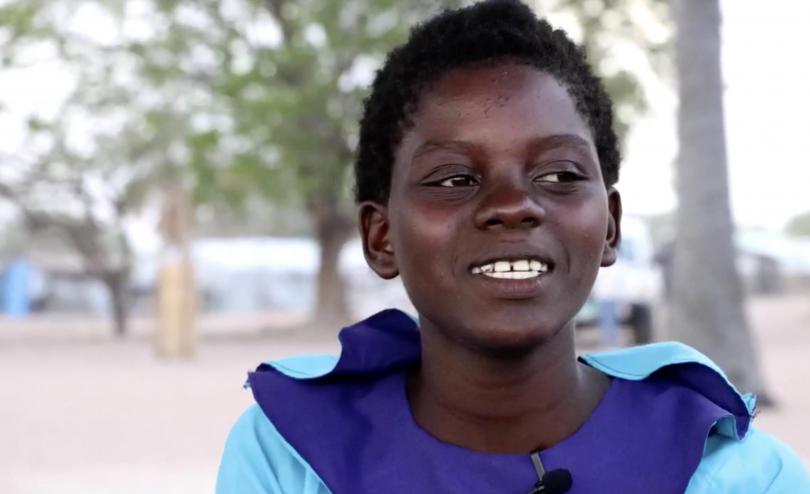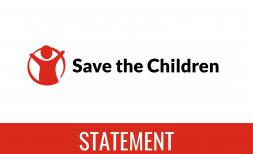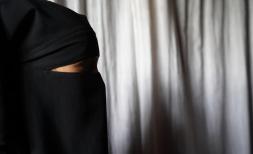COVID-19: Kids in world’s poorest countries lost 66% more of lifetime at school than richer peers - Save the Children

Girls in poorer countries missed 22 percent more days in school than boys, new analysis by Save the Children found
- Save the Children is calling on global leaders to prioritise education spending to send children back to school safely
- News comes as pressure mounts on G7 leaders to back global vaccination plan
Children in poorer countries have lost 66 percent more of their lifetime number of schooldays during the COVID-19 outbreak compared to their peers in richer countries. On average, girls in poorer countries missed 22 percent more days in school than boys, new analysis by Save the Children found.
Children in some of the poorest countries in the world have lost up to 20 percent of their lifetime days in school during to the COVID-19 pandemic, according to the same analysis – with conflict adding to the closure of schools in some countries.
Despite children all around the world having faced a year of school closures and disruptions, the impact has been far greater for children in poorer countries, as they often would have spent fewer years of their life in school even before the pandemic.
The organisation released the data as G7 leaders gather in the United Kingdom to discuss recovery from the pandemic, including plans for getting children back into school. Pressure is mounting on G7 leaders to back a global vaccination plan so that people across the globe are better protected from COVID-19, which will help get children’s education back on track.
The trend shows that the percentage of lifetime schooling lost for girls is generally greater than for boys. For example:
- In Guinea, children have missed some 22% of their total lifetime of school days on average; boys lost an average of around 15 percent of their lifetime schooldays, girls lost an astonishing 39%;
- In Burkina Faso, children have lost over 20% of their total lifetime of school days, with boys missing out of 14% of their school days, and girls missing 29%;
- In Afghanistan the figure could be almost 13% average, with around 9% for boys and 21% for girls.
- In lower income countries, girls lost an average of 22% more lifetime schooling than boys. Girls were still disadvantaged, although to a lesser degree, in richer countries (where girls lost over 3% more lifetime schooling than boys).
The new analysis of the number of lost schooldays is likely to be an underestimate, as the global data available does not capture all school days lost in partial school system closures.
Also, the analysis does not include access to remote learning, which likely would have made the gap between wealthy and lower income countries even greater, Save the Children said. The organisation emphasized that remote learning cannot make up for the loss of schooldays, as going to school helps children laugh, learn, eat, play and grow.
Being in school can also protect children from various forms of abuse and exploitation as not only their learning, but also their wellbeing is monitored by teachers.
The impact of being out of school can completely change the course of girls’ lives, Save the Children said. Last year, the organisation warned of a dramatic surge in child marriage and adolescent pregnancy, estimating an additional 2.5 million girls at risk of child marriage over five years and adolescent pregnancies expected to rise by up to one million in 2020.
In South Sudan, a recent assessment by several organisations of the impact of COVID-19 on education showed that in some states, up to 27% of the children did not return to school. Some 39 percent of the teachers said that not all children in their classes had returned.
The South Sudanese girl Karina, 17, is in eighth grade – but she has been out of school because of the COVID-19 pandemic.
“The biggest concern is that girls who have not been attending school… their parents force the girls to get married. If they force you to marry, you will not get a better education. Your education will stop there.”
“When I grow up, I want to be a doctor. I will be free in everything, because of my education. Education is showing me how life will be.”
To tackle the biggest education emergency of our lifetime, Save the Children is calling on G7 leaders and other governments to make ambitious pledges to the Global Partnership for Education of $5 billion for the next five years and urgently work towards making COVID-19 vaccination coverage truly global; as well as national governments to increase education budgets. Education ministers also need to draw up clear roadmaps to bring all children safely back to school when the time is right, and improve their education.
Save the Children also started the campaign 100 Days of Action on 1st June. This campaign will see thousands of children in over 50 countries across the world, supported by Save the Children, partners and supporters, speak out over 100 days to tell leaders that children are looking to them to fully support and fund their education, leaving no-one behind.
Inger Ashing, CEO of Save the Children, said:
“As with every crisis, the biggest victims of the COVID-19 pandemic are children, and our analysis shows that when it comes to school closures, the poorer the country, the bigger the impact. Sadly, girls are more likely than boys to have disproportionately missed out on their schooling, as all too often girls leave school early due to child marriage, pregnancy, or having to work.”
“Especially in lower income countries, where children have far less days of schooling in their lifetime to begin with and where there’s less access to remote learning, it’s vital that children can get back to school as soon as it’s safe to do so.”
“The countries where children have proportionally lost more schooldays, are also countries where COVID-19 vaccination rates are generally low. It is now up to G7 leaders – the world’s biggest aid donors – to make tangible commitments to turn the targets they signed up to in the G7 Girls’ Education Declaration a reality and make ambitious pledges to the Global Partnership for Education. Also, richer countries must make urgently fund and share vaccines, and do all they can to ensure equitable access to vaccines for poorer countries. The next generation must finally be put front and centre.”
Besides funding education, Save the Children emphasizes the importance of preparing schools, children and teachers for a safe return to school and learning, by improving non-pharmaceutical measures in schools such as ventilation and water, sanitation and hygiene (WASH) facilities.
*Name changed for privacy reasons
To support Save the Children’s global COVID-19 emergency appeal, click here.
Notes to editors:
- Based on data from UNESCO and the World Bank, Save the Children estimated the total lost number of days in school in countries across the world as a percentage of lifetime schooling since the onset of the COVID-19 pandemic. To do this, it used existing country data on school closures, number of school days in an academic year, the average years of schooling, and school-aged population. Data on mean years of schooling and school-aged population is disaggregated by gender, as are the overall estimates. For the full methodology, see this link.
- In response to the COVID-19 outbreak and the impact on education, Save the Children has been providing distance learning materials, such as books and home learning kits, working closely with governments and teachers to provide lessons and support via radio, television, phone, social media and messaging apps, and providing safe spaces for children in conflict areas (for example in the Sahel) to learn together in a safe and inclusive way.
- Save the Children is making sure children are safe at home and not missing out on the meals or menstrual hygiene kits they would usually receive at school. And it is providing guidance for parents and other caregivers to ensure they have the right information about how to support their children’s learning and wellbeing at home.
- Save the Children is also working with education authorities to help plan for the safe return to school, advocating with and on behalf of children to ensure decision-makers are aware of their concerns.
For any questions and to arrange media interviews please contact:
- Emily Wight, Emily.Wight@savethechildren.org; +44 755 701 5031;
- Out of hours (BST) Media@savethechildren.org.uk, +44 7831 650 409




